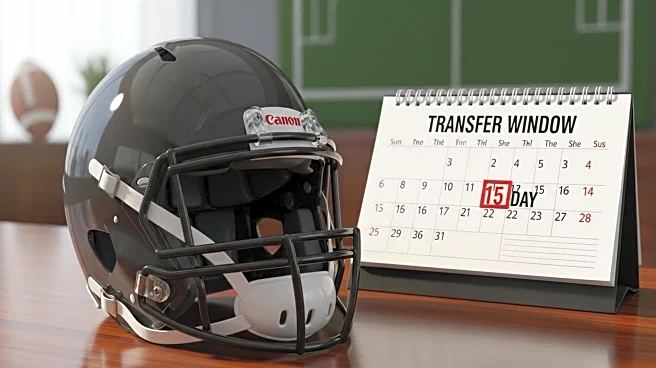What is the story about?
What's Happening?
The NCAA Division I Administrative Committee has approved a significant change to the football transfer portal system, consolidating the transfer window into a single 15-day period in January. This decision eliminates the previous spring window, allowing FBS football players to enter the transfer portal only from January 2 to January 16. The change follows recommendations from the Division I FBS Oversight Committee, which initially suggested a 10-day window. The NCAA stated that this adjustment was made in response to student-athlete feedback. Previously, the transfer portal was open for 20 days in December and an additional 10 days in April. Exceptions to the new rule include a 30-day window for athletes whose head coach departs and a five-day period for players on teams participating in the College Football Playoff after January 12.
Why It's Important?
This change is significant as it aims to streamline the transfer process for student-athletes, potentially reducing the disruption caused by mid-season transfers. By consolidating the transfer window, the NCAA seeks to provide a more predictable and manageable timeline for both players and coaching staff. This could lead to more strategic planning for teams and athletes, impacting recruitment and team composition. The decision reflects the NCAA's responsiveness to athlete feedback, highlighting a shift towards prioritizing student-athlete welfare. However, it may also lead to increased pressure on athletes to make quick decisions about their future, potentially affecting their academic and athletic careers.
What's Next?
The NCAA's decision is not yet final, pending the conclusion of the Administrative Committee's meetings. If confirmed, the new transfer window will take effect, and stakeholders, including coaches and athletes, will need to adapt to the revised timeline. The FBS Oversight Committee will continue to evaluate potential changes to exceptions, such as those related to coaching changes. The impact of this new system will likely be monitored closely, with adjustments possible based on its effectiveness and feedback from the college football community.
















